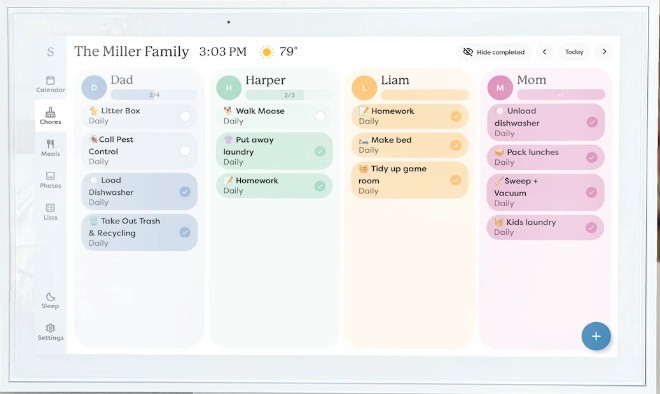How to Plan a Calm Holiday Season With The Kids--Part 1

The holiday season is almost upon us. Diwali takes place during the week of October 19. Halloween and Christmas decorations are across the aisle from one another at Lowe's. One look at the school calendar will tell you that November is almost a full month of schedule disruptions, with Thanksgiving being the least among them! If the mere thought of all these schedule changes, and additions to your family's schedule, and the accompanying reassurance and redirection that's needed to keep your little ones from stressing gives you dread--fear not. It's time to take a deep breath, find a reasonably quiet spot, sit down with your favorite beverage and create a plan.
A Schedule Disruption is a Schedule Disruption
Let's set aside what we might think of as the typical issues that come up for little ones and holidays for a moment, and speak solely about school schedule disruptions. In Bergen County, the month of November, and in some school districts even October, is littered with days off and half-day sessions. Even if your kids have been in school for a while and you "know the drill," each stage of your child's development can and will change the nature of how you handle these. That's why a plan is so important--to give you the peace of mind that even in the event of a 'surprise,' you're equipped to handle it. Let's start with what to expect as a Bergen County parent:
- Election Day is November 4--many public schools, because they serve as polling place--do not hold classes. Check your district's calendar.
- The NJEA is November 6-7--again, most public schools close for this.
- Parent-Teacher conferences--many schools have a half-day of classes for this.
- Open House for admissions-based high schools
- Fall sports banquets for high school students.
- Fall play--rehearsals and performances.

The most obvious thing to start putting into place for the school closures and half-days is childcare. If you're working or have an afternoon conference with your child's teacher, you'll need to decide who your child will be with and what they will be doing during that time. Whether it means drawing on friends or family members, a baby-sitter, or your school's 'after-care' program, putting your childcare in place for these days well in advance provides both you and your child with reassurance. You may even want to set up a back-up alternative in case your original plan falls through! The friend who offers to host your child for the afternoon may have a change in work schedule. If you are relying on your own parents, is there a chance their schedule will change due to a medical situation? Having an alternative saves you from last-minute stress. Even if you will be at home with your child, it's a good idea to map out how you want to spend that time. Do you want to plan an activity with your child during that time? Do you want to use that time for their homework, completion of assigned projects, or quiet reading? Both are equally valid options; decide what makes the most sense for you and your family now. From my days as a public school teacher, I know that many families use that first week of November for family vacations--because school is closed for three of the five days. No matter what you put in place for these days--family time or activities through other childcare options--consider both what is available to you, and how your child will adapt to the rapid changes the month of November holds for them. Keep reading!
Developing a "Time-Off-From School" Routine That Helps Children to Regain Momentum After a Schedule Disruption
Whether you remember from your own childhood days or still experience it now, "time off" builds excitement. We anticipate it and savor it. An extra hour or so of sleep! Doing things you enjoy! Quiet time! Fun! And when it finally arrives, we enjoy it as much as we can! Even if you are the one caring for your own child on those days off from school--the smiles, snuggles, and laughter are priceless--you've engineered them! But now that the time off is over--there's a full week of school. So it's back to the "old grind," time for your child to go back to their regular wake-up time, to sitting still and being quiet for what feels like a long stretch of time, to following those classroom rules and expectations. Then it's another two weeks of changed routines and schedules again! It's enough to give an adult whiplash, let alone for children whose brains, bodies, and coping skills are all growing. The following are a few tips to help ease those transitions. They can be used throughout the holiday season--because they emphasize healthy habits that can be utilized over and over again.

- Keep your child in the loop. You may know which days have a school closure or an early-dismissal, but your child may forget that it was mentioned on the morning announcements. If you are not sure of the schedule changes, look at your school's calendar weekly, in addition to the daily backpack check. When you know the schedule, remind your child. Once you have set up your plan and put all the pieces in place, describe how the day will go. Make sure they understand how the day will be different, but still have elements they'll understand and that will fit into their routine.
- If appropriate, include your child in the planning process. While you will, of course, handle the childcare--you can involve your child in selecting the activities for their afternoon or day off. Perhaps allow them to pick one or two, from a choice of three or four. Again, set the boundary of having the special activities fit into a familiar routine.
- That said, try and keep as much 'routine' as possible. Doing this will make the return to a full week of classes easier. Maintain bedtimes and mealtimes. Keep foods familiar if at all possible--especially if it is not an actual holiday. While your child's school may or may not assign formal homework for the two-day school closures, asking your child to read for 10-15 minutes per day will keep them in the academic 'habit.'
- Build in outdoor play, if possible. The weather might be cold and rainy in early November, but if it isn't--time at a playground, park, or even in the backyard gives kids a chance to burn off energy in a way that screen-time doesn't provide. Physical activity is good for all of us--both mentally and physically. If weather doesn't allow outside activity--schedule a brief dance party! It gives everyone a fun way to get moving. If your middle or high schooler rolls his or her eyes at this, then try something a bit more "formal"--a short workout video from YouTube. Get creative! "Light saber" fight, anyone?
- Have enough flexibility in the activity plan to accommodate for overstimulation. This is especially true on early-dismissal days from school. At school, their regular routine will have been disrupted by shorter class periods, and often enough, special activities ranging from a school assembly, to a fire drill, or to a trip to the PTO/PTA's book fair. Throw in a classmate's birthday that includes distributing a treat to the whole class--your child is already coming to you with a fair amount of upheaval. They may be so hyped that they might not want to go to the movies like you planned, or on the other hand--so tired and cranky that the last thing they might want is the playdate you planned. Keep some wiggle room.
How These Tips Can Help Keep The Holiday Season Calm

By planning ahead and putting in place a sense of both fun and structure during this time of pre-holiday hullabaloo, you are building a "time-off-from school routine." When the holidays do come around, your child will have a sense of what to expect. Why is that important? Numerous research studies have demonstrated the positive outcomes associated with children following a routine. These include:
- The ability of children to form and internalize expectations--which helps your child build good habits through both intrinsic and extrinsic validation
- A reduction in uncertainty makes for less anxiety, and for better executive functioning
- The opportunity for practicing self-control and delayed gratification--because they're aware of what's coming next
- Knowing what's next and what's expected allows children to feel more secure, and a greater sense of agency.
The last point is crucial, as the more secure a child feels--the less likelihood there is for meltdowns and acting out. Again, if we as adults--who have years of emotional development and practice with self-regulation--can feel 'thrown' when there are last minute changes to our schedule, imagine how a child with less experience, who is building a library of coping skills and learning how to navigate life feels. It can be overwhelming. A gentle approach to consistency--a balance of fun and structure--will help your child not only navigate the ups and downs of their school calendar, but help them build on that navigation for the holiday season and beyond. Taking schedule changes in stride--through an "abridged" routine--will cause less stress for your child, allow them to get back on track after the holidays are over more easily, and to build resilience and self-motivation.
How ChoreVoyant Helps Families Create a "Time-Off-From-School"-Routine
ChoreVoyant is a personal concierge service, not a childcare provider. So, how do we help families create a "time-off-from-school" routine?
In a number of ways, such as:

- Making reservations for family activities
- Doing online research of childcare options--babysitting, nanny services, etc.
- Keeping the home environment "on schedule"--groceries purchased, prepped, and put away; laundry completed; errands completed
- Home watch services if you are traveling
In short, ChoreVoyant gives parents freedom. Freedom to maintain their own work routines despite an up-ended school schedule--by handling the logistics of running their household. Household tasks and errands become one less thing to worry about when there's a lot on their plate. Freedom to enjoy time with their children, without stopping to think about their to-do list. This freedom to do the things you want and need to do--without the hassle of trying to manage your household to boot--brings peace of mind. And calm parents can help support their children through anything--before, during, and after the holidays.
If you are in the Wyckoff, Ridgewood, Ho-Ho-Kus, Waldwick, Old Tappan, Norwood, Harrington Park, Westwood, River Vale, or Oradell area and would like to explore how ChoreVoyant can help you with household tasks and errands--in any season--click here or give Marcia a call at (201)707-5813.

